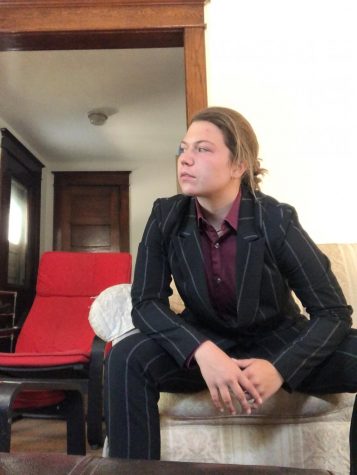Mac allocates spring break food budget to students with high need

March 12, 2020
On Tuesday, March 3, a small group of Macalester students received an email from Associate Vice President of Admissions and Financial Aid Brian Lindeman ’89 titled “In Saint Paul for spring break? Mac Money is available to you.”
The email went on to describe a new initiative Macalester is implementing during the upcoming spring break which will help students in need access food without spending money at The Grille every day.
This initiative provides a small group of students with $176 in Mac Money which will be applied to their accounts the morning of March 14. This money can be used at The Grille or campus vending machines throughout the break. Any unused balance will be removed from student accounts on the morning of March 22.
According to the email sent to this group, the hours of The Grille will also be extended during the break. It will be open from 7:30 a.m.-6:00 p.m. every day from March 14-21. Normal hours will resume on March 22.
“All the credit goes to MCSG because they are definitely the ones that brought this forward to us,” Associate Vice President for Finance Patricia Langer said. We had some good conversations with them.”
Vice President and Student Services and Relations Committee chair Fatiya Kedir ’21 and Financial Affairs Committee member Jason Kohn ’20 spearheaded this project. Both were a part of the MCSG group which submitted a resolution to Bon Appétit and the college last semester, asking for meal swipes to be accessible during spring break.
Kedir and Kohn met with the committee including Langer and representatives from Bon Appétit, to discuss their vision. After this meeting, and looking at peer schools’ programs, the committee decided on the Mac Money plan.
“The plan that we moved forward with is one that seemed to be pretty popular [among peer institutions] and worked well,” Langer said. “It achieved the goal of providing a currency that is already used — since anonymity is something that was really important to MCSG.”
In past years during the break, Cafe Mac, the Loch, Scotty’s and the Atrium all closed on Friday. After that, the only food available on campus from Bon Appétit was at The Grille, which was only open during the weekdays from 8:00 a.m.-1:00 p.m. While students were able to use Flex Points, meal swipes are not available over the break.
For students who can’t afford a flight home, this can be a large financial burden.
“Spring break can be a challenge because Café Mac and other campus food outlets are not available,” Lindeman wrote in the email to the group of students. “Macalester will take a step toward meeting this challenge during spring break 2020.”
According to Langer, the college calculated what a full meal would cost, twice a day at The Grille, and came up with $176 — a significant financial burden for students who stay on campus during break.
“The idea was to fund two meals a day,” Langer said. “So we asked Bon Appétit: if somebody gets essentially a full meal — sandwich, a side, a beverage, a cookie — what does that cost? We multiplied it by two, times eight and that’s how we ended up with our number.”
After deciding on a currency and amount, the committee bumped the proposal to the financial aid office so they could identify the students who would have access.
“My staff has no visibility into student need, so we reached out to financial aid and asked them to identify the students that would be most appropriate for this program,” Langer said.
Lindeman and the financial aid office worked to pull together a list of students who would benefit most from this program.
“We essentially targeted the same group of students who are offered the option to charge their textbooks in the bookstore,” Lindeman said. “So it’s probably between 20 and 25 percent of students who are currently enrolled and roughly equivalent to students who are eligible for federal Pell Grants… We also include other students who are sort of in the same financial situation.”
Neither Langer nor Lindeman knew of prior programs offered during spring break to ease this financial burden for students. Langer and business services hope to use the data from this spring break to decide what future steps should be taken.
“Our plan is to look at the data once spring break is over and figure out if this was successful,” Langer said. “Does it seem like this was well used?
“We’ll have conversations afterward to figure out what to do next because it is a first time,” she continued. “I think it would be inaccurate to think that there would never be anything again because clearly this is a gap. Otherwise we wouldn’t be doing this.”












